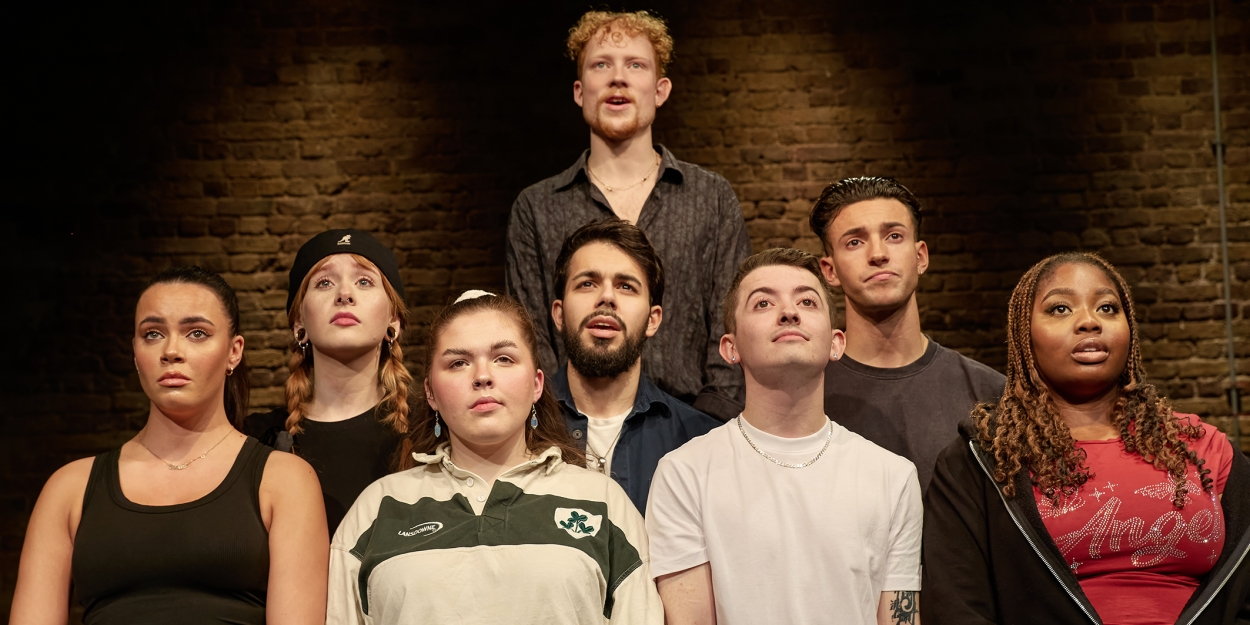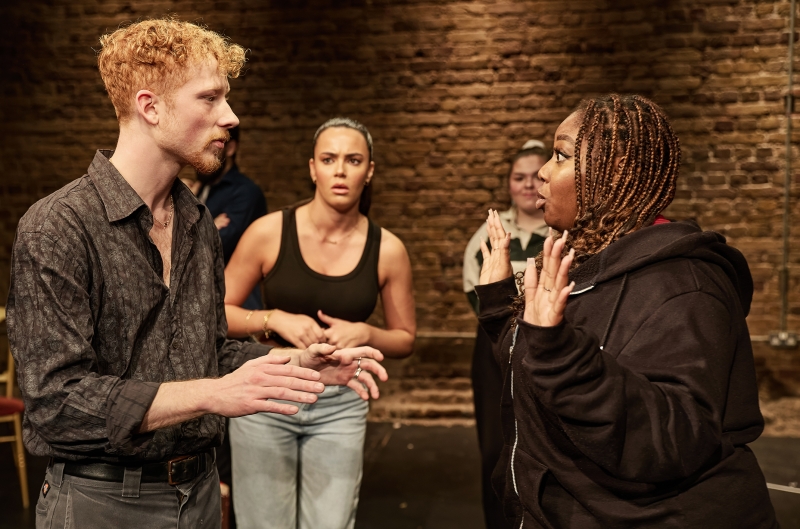Review: BEYOND OURSELVES, Union Theatre
Ardent8's showcase for recent out-of-London graduates reflects on the trials of the creative process

 Not so much six characters in search of an author, more six actors in search of a plot, or an agent, or an artistic expression. Or success, whatever that may look like.
Not so much six characters in search of an author, more six actors in search of a plot, or an agent, or an artistic expression. Or success, whatever that may look like.
Beyond Ourselves, with plenty of meta stuff, comic stuff and nowhere near enough singing, takes on so many issues in its hour or so running time that it can be tricky to keep up with the plot. Or, rather, it would be if a plot were to emerge, as it always hangs tantalisingly just out of reach. It’s surely writer/director Andrew Muir’s intention to leave us, like the actors themselves, ready for a play at the end of his play. For some, that will be a tad irritating - after all, we’ve been marched up the hill and can see the sunny meadows ahead - but the play is as much a clarion call to the power of creativity as it is anything else. So what happens next is inside their heads and ours.
We start with the transactional butting up against the creative, mucky money vs acclaimed art. The mysterious animator of the event (an otherworldly Jake Rayner Blair) explains that he has no script, just a moment and a conclusion in outer space - one wonders if Richard O’Brien said something similar half a century ago. The actors rail against such wishy-washy vagueness saying that they want an audience to pay for tickets that will, in turn, pay their rents - so an audience is conjured. They want a script - and one appears. They want a set - and a bar and sofa are improvised on the spot.

We get to know our loose team as they bond. Eddie Drummond wants a spotlight (and eventually gets one). Annabel Worsfold wants some self-esteem, and she gets a little by the end. Callum Diaz wants some gangsters - he doesn’t get any good or bad fellas, nor even a horse’s head. Caoimhe Macklin, India Pignatiello, Danielle Laurence and Thoma O’Neill complete the cast, each with their own hopes and fears, each carrying a little shrapnel from the wounds the industry and society visits so casually on their generation.
It is to their credit (all are recent graduates on Ardent8’s project to break down barriers in theatre, particularly for young people living and training outside London) that they can create believable, warm, vulnerable individuals within an equally credible group in so short a time with so few props and no set. It’s a metaphor, of course, for the meagre tools a graduate has at their disposal when forging a career in the creative industries - and the lights could go out at any moment.
It comes at a cost, however, and this is so often an issue with a play created with young people in mind on either side of the fourth wall - instead of our discovering the true nature of the characters before us, they tend to simply announce their anxieties and report in their backstories. We know too much about them too quickly, too many of the spaces we should be completing in our imaginations are coloured in primary shades by dialogues and monologues. In a play about trusting artists to make art, it’s a shame that an audience can’t be trusted to be an audience and do a little of the work ourselves.
The play (that never quite gets going) within a play, ends on a glorious note with Jake Rayner Blair at the piano playing his own song and Eddie Drummond finally getting his spotlight to sing beautifully, backed by the rest of the cast harmonising pleasingly. I can’t have been alone in wondering why we hadn’t had more musical interludes, as it would not have been too difficult to find a little chat to cut earlier and replace it with a song or two, as the talent is clearly there on stage.
As the young cast of Beyond Ourselves go out into the world, literally beyond themselves, they’ll have a showcase London run to learn from and also the unique thrill of working as an ensemble creating something for an audience that exists in the stalls rather than in their imagination.
What gnaws at me as a reviewer in my small enclave of theatre’s fragile ecosystem is the prevailing thought that I’ve only scratched the surface of the potential on stage. The comedy was funny, but there could have been more; the pathos was genuine, but delivered with a sledgehammer and not a scalpel; the music was tremendous, but just three or four minutes in 75.
I guess the takeaway is, as it is for everyone involved, to accept that beginnings can be messy and hesitant, but they are only beginnings. It’s what happens to ourselves beyond those first stumbles and recoveries that really matters.
Beyond Ourselves at the Union Theatre until 12 November
Photo Credits: Mark Douet
Reader Reviews
Videos

